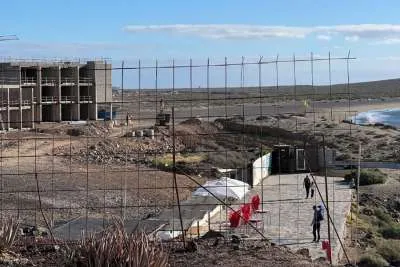Does hosting World Cup games in Gran Canaria make economic sense?
- 30-07-2024
- Business
- Canarian Weekly
- Photo Credit: Unsplash
The 2030 World Cup will be a global celebration, taking place in a range of countries from Argentina to Morocco, Portugal, and Spain. Of the 11 Spanish venues, one of these will be at the Estadio de Gran Canaria, but apart from the revenue the competition will bring, it is also known to place strain on infrastructure and requires significant investment. So, does hosting a World Cup make economic sense?
The Increasing Appeal of Football
It would have seemed foolish to think that football could have gained any more popularity than it already had in the nineties and early millennium, right after the foundation of the English Premier League. Yet commercial internet and improved quality in connection speeds have allowed the sport the reach even further. This has meant the Premier League, arguably the most popular league in the world, has attracted a lot of global investment and talent.
You only need to look at the best Premier League betting odds and the teams tipped to win. Manchester City are the favourites at 13/10 as of 22nd July 2024. The club is owned by Sheikh Mansour of Saudi Arabia and was previously under ownership of a Thai billionaire.
The sport's popularity has also been buoyed by its links to online betting, which now allows a host of ways to wager on the sport. You can conduct in-play betting and even have each way bets on places. A host of information such as how to calculate each way bets is provided by operators, letting people across the world make wagers.
In essence, football is now global. The Premier League has made it extremely popular, and the World Cup is the focus of all that, where fans can watch players from their home country who compete in European leagues play on the world stage. Gran Canaria may be a small island and doesn’t have its own Premier League, so a World Cup is the next best thing.
Cost of Hosting a World Cup

The world has seen a plethora of major sporting events, such as the Commonwealth Games, get turned away by host cities in recent years. New infrastructure costs money, in a world that is dealing with price rises daily. The infrastructure needed is also a point of discontent. Sports stadiums take up high-value real estate areas and are for short-term economic gain. They are often left purposeless once the tournament has finished and moved on.
Benefits of Hosting a World Cup
However, the economic benefits are vast. FIFA offers countries a sum for hosting the event, as well as all revenue from the ticket sales. All this is added to the benefits brought as local tourism booms and local businesses are hired for events or to do vital construction work.
Most detractors do not always discuss the long-term benefits either, which can be unquantifiable. These include the boost to local youngsters who may take up sports and use the facilities, with studies finding that it is winning that brings a true economic boost as opposed to hosting.
Of course, one of the advantages is that FIFA seems to understand the cost. In recent years, more competitions have been split across countries, hedging the expenditure of these events. None have been as spread out as this one, with the initial games taking place in South America, then moving to Morocco, Spain and Portugal.
With Gran Canaria being a small part of the bigger puzzle, these cost implications should be somewhat reduced. A boost of this size could be just what the island needs to get the economy back on track and improve revenue for local businesses.



























































